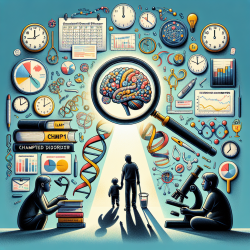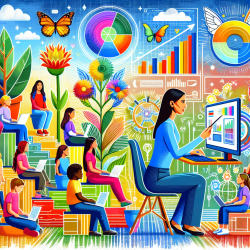Understanding the Impact of Educational Interventions on Indigenous Inequities
In the realm of health professional education, addressing inequities faced by Indigenous Peoples is a crucial aspect of fostering cultural competency and improving health outcomes. A recent study titled "Beliefs around the causes of inequities and intergroup attitudes among health professional students before and after a course related to Indigenous Peoples and colonialism" sheds light on the impact of educational interventions on learners' beliefs and attitudes.
The Study: A Closer Look
The study involved 335 learners from various health professional programs, including Dentistry, Medicine, Nursing, and Pharmacy, at a Canadian university. These learners participated in a course designed to enhance their understanding of Indigenous Peoples and the historical context of colonialism. The course aimed to address the Truth and Reconciliation Commission's Calls to Action by incorporating anti-racism and cultural competency education.
Pre- and post-course surveys assessed learners' causal beliefs, blaming attitudes, support for social action, and perceived professional responsibility to address inequities. The results revealed that only one cohort reported significant changes, indicating a greater awareness of the effects of colonialism but also an unexpected increase in blaming attitudes and decreased support for government action.
Key Findings and Implications
- Awareness of Historical Factors: The study found that learners who recognized the historical aspects of colonialism were more likely to support government action to address inequities.
- Blaming Attitudes: A negative correlation was observed between historical awareness and blaming attitudes, suggesting that learners who acknowledged historical factors were less likely to blame Indigenous Peoples for inequities.
- Gender and Program Influence: Gender and health professional programs were significant predictors of blaming attitudes, with males and certain programs (e.g., Dentistry) more likely to express these attitudes.
These findings underscore the complexity of educational interventions and the need for continuous evaluation to ensure they achieve their intended outcomes. Practitioners must be aware of the potential for unintended effects and strive to create learning environments that foster understanding and empathy.
Practical Steps for Practitioners
To improve their skills and contribute to better health outcomes for Indigenous Peoples, practitioners can:
- Engage in ongoing education and training on cultural competency and the historical context of Indigenous Peoples.
- Reflect on personal biases and attitudes, and seek to understand the root causes of health inequities.
- Advocate for and support policies that address social determinants of health and promote equity.
By implementing these steps, practitioners can play a pivotal role in addressing inequities and improving health outcomes for Indigenous communities.
To read the original research paper, please follow this link: Beliefs around the causes of inequities and intergroup attitudes among health professional students before and after a course related to Indigenous Peoples and colonialism.










